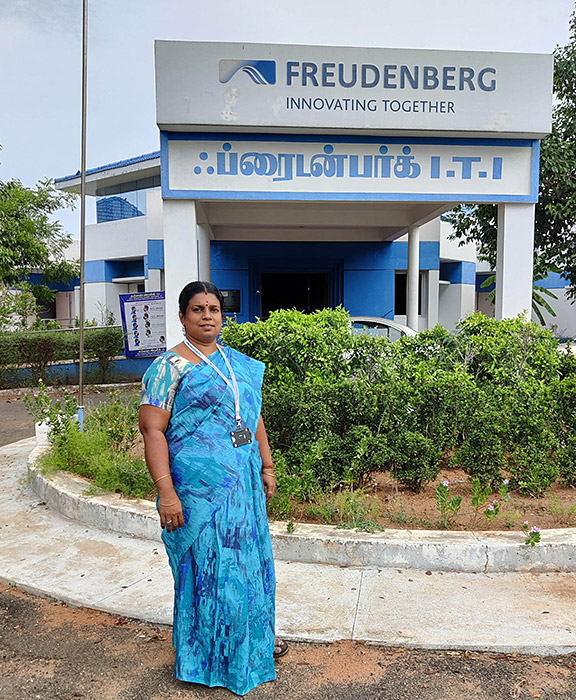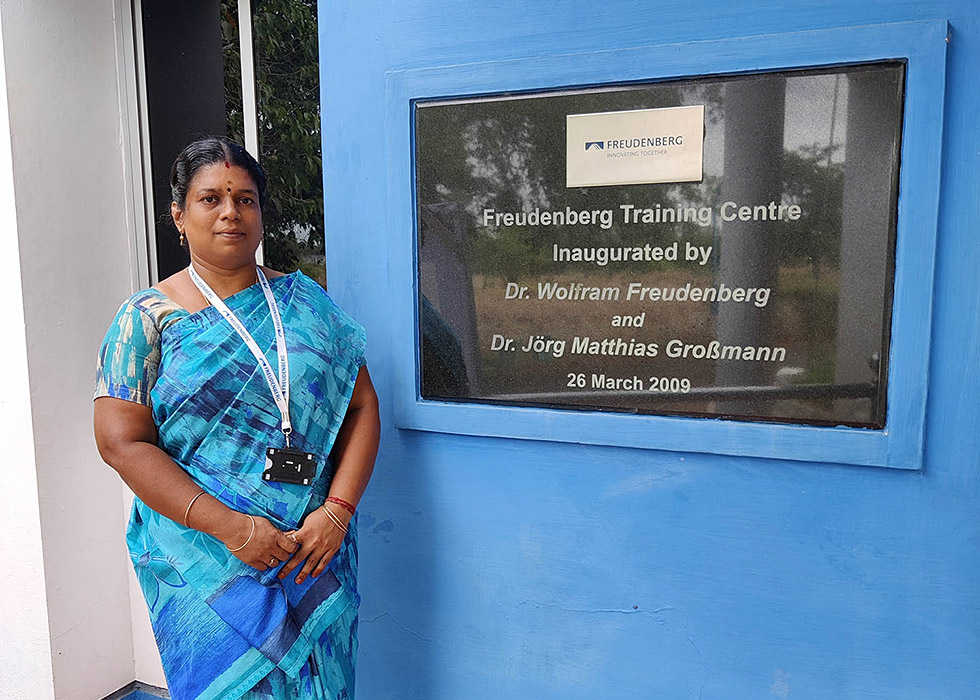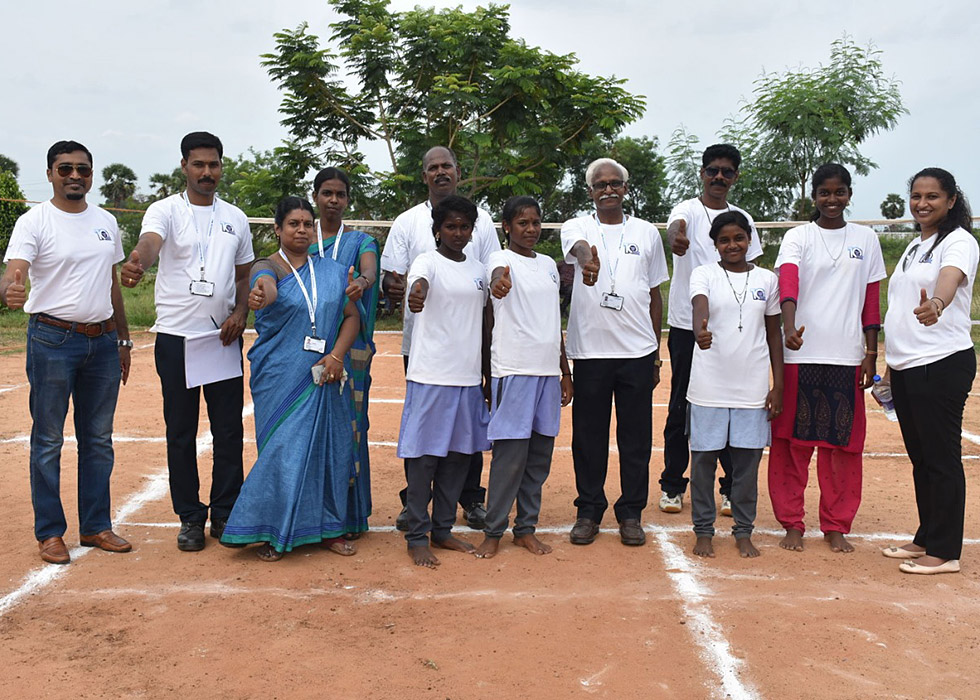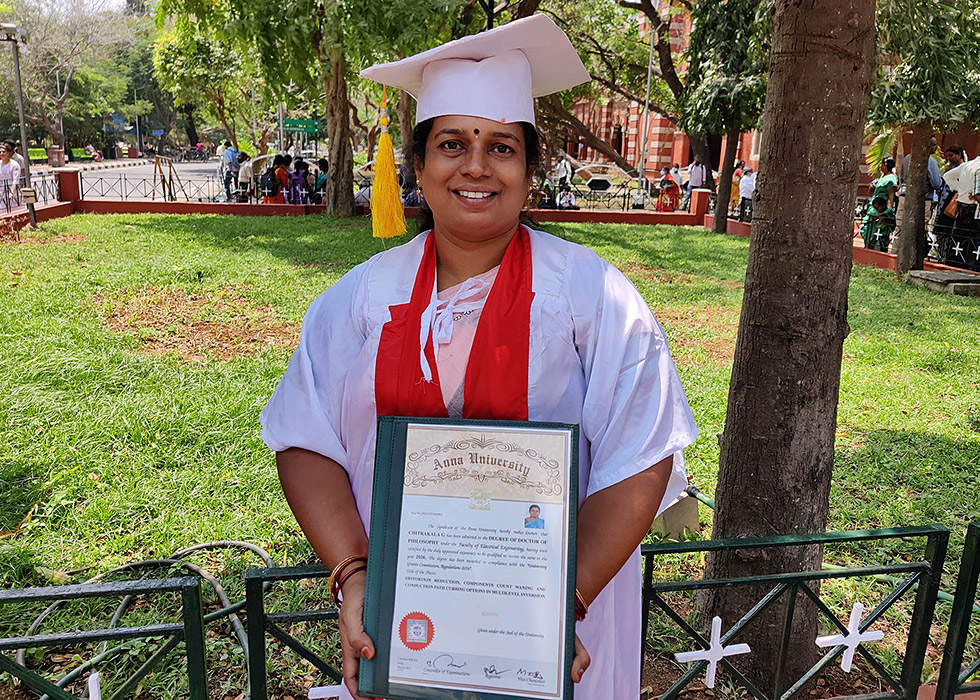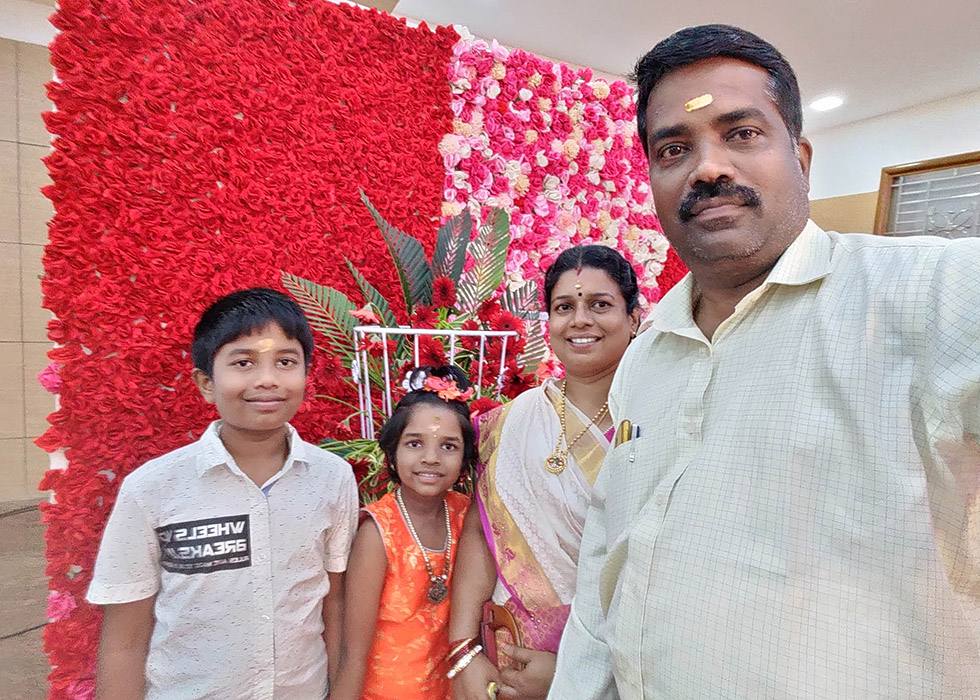From dreams to reality
Freudenberg puts diversity into practice and encourages women to move forward in their professional lives. Dr. Chitrakala Mohan, an electrical engineer working at the Freudenberg Training Centre in Nagapattinam, India, is a prime example. Despite the weight of social pressure, the 39-year-old earned a doctorate, and now motivates her own female students to aspire to a life of equality. As of August 1, she took over as principal of the Training Center.
Household chores and raising children. In India today, both are still seen as the traditional duties of women. Despite equal rights enshrined in law, vocational training or even university attendance are often not within most people’s grasp. For anyone with their heart set on an academic degree, perseverance and tenacity are an absolute must. The journey to gain a doctorate was also often an arduous one for Chitrakala Mohan – an engineer at the Freudenberg Training Centre in Nagapattinam, who recently took over the management of the Training Center.
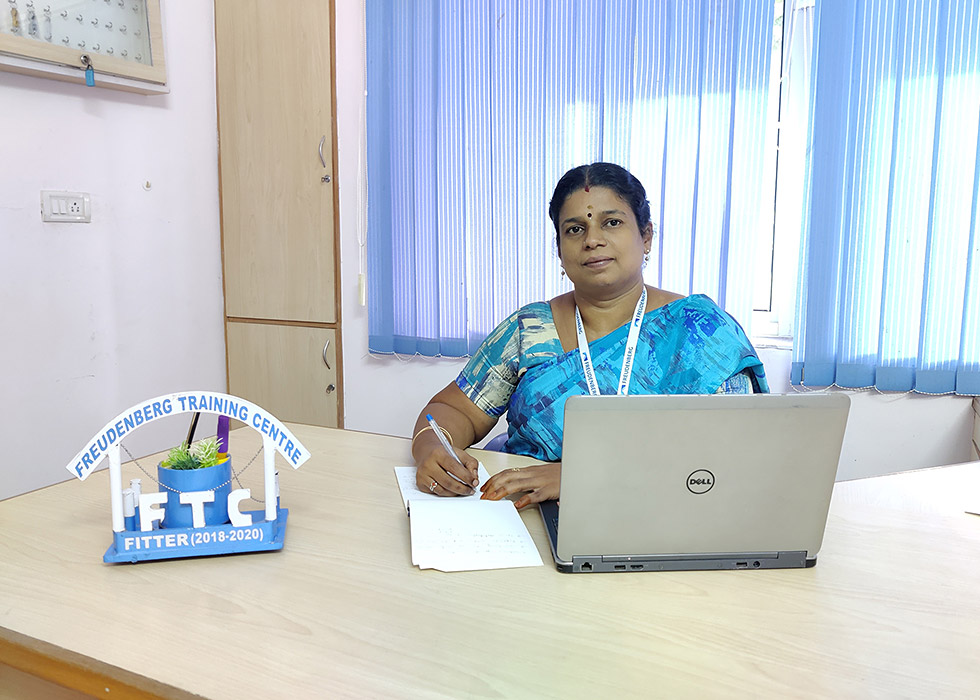
Dr. Chitrakala Mohan
I wanted to give something back to my parents and help them finance the education of my two younger siblings
Dr. Chitrakala Mohan
Raised as the eldest child in a middle-class family, Chitrakala’s parents precisely understood the role education would play in their daughter living an empowered life. They invested in good schools to give their child the best possible start to her career. “Even then, I was thrilled by technology,” says the 39-year-old. So in 1999, she began studying electronics and electrical engineering at Madras University. After graduation, she started her professional career as a lecturer at an engineering school. “I wanted to give something back to my parents and help them finance the education of my two younger siblings,” Chitrakala continues. “From 2008 onwards, I could then devote additional time to my postgraduate studies in power electronics and drives.”
A married mother with a career
Chitrakala is now married and has two children of her own, aged nine and six. In 2016 she decided to do a PhD. “A married mother with a career – and a PhD on top – entails negotiating many obstacles,” she explains. “But I’m very determined and thanks to my husband’s full support, I coped well.” Over four and a half years, mostly in the evenings and at weekends, she conducted research on multilevel inverters. Alongside, there were the research trips. “We live in Nagapattinam – a small place. Advancing my career often meant being away from home,” Chitrakala continues. Finally, in December 2020, she was at long last able to hold the coveted PhD certificate in her hands.
Help young people qualifying for a technical profession
Midway through her research in 2018, she joined the Freudenberg Training Centre in Nagapattinam. Freudenberg supports women in realizing their career plans and also assisted Chitrakala with her doctorate. As a result, the young Indian woman taught natural sciences and electronics part-time, freeing up more space for her scientific research. Freudenberg originally established the Training Centre in 2004 following a devastating tsunami. The Centre’s goal is to provide young people with apprenticeships and help them qualify for a technical profession that will shape their own and their country’s future. Every year, roughly 120 young people receive theoretical and practical training at the Centre for one to two years, along the lines of the vocational training system in Germany. Classrooms, workshops, meeting rooms and a canteen are located on a 57,000 square meter site. By the time they come to leave, the young apprentices have acquired the right skills to build their own lives as electricians, mechanics, welders or metal workers. Over the years, the training program has enjoyed considerable success and is today certified by the National Council for Vocational Training, known throughout India for its stringent standards.
I’m incredibly proud to work for a company which is committed to equal opportunities.
Dr. Chitrakala Mohan
“I love getting young people passionate about technology,” Chitrakala explains. Increasingly, she says, there are more and more girls in the classes. “I’m incredibly proud to work for a company which is committed to equal opportunities.” Esther Loidl, Freudenberg Management Board Member and Chief Human Resource Officer agrees with the Indian national: “A major strength at Freudenberg is diversity in action around the world. To the degree that we support women to develop their professional potential, we also benefit as a company.” Georg Graf, Freudenberg Group Regional Representative for India, also congratulates Chitrakala on her success: “The Freudenberg Training Centre in Nagapattinam is a live example of our Freudenberg values. Under the lead of Dr. Chitrakala Mohan FTC will shape many more life stories of our students while providing vocational training and life skills for a better future.”
Thoughts result in action
For the female apprentices, Chitrakala is an inspiration. With the pandemic raging in India, she remained undeterred in the pursuit of her PhD and continued with her teaching. “I also had an amazing role model,” she explains. “If there’s one thing I would pass on to our students, it’s the words of our former president, Abdul Kalam: “Dream, dream, dream! Dreams transform into thoughts and thoughts result in action.”
